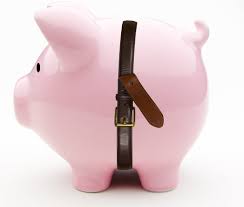When you think about saving money, the first tips that probably spring to mind are eating out less and avoiding Friday night drinks. And when the coronavirus crisis took away those options, you might have assumed that you’d be saving more money than usual.
While many people did find themselves with more money in the bank, others the pandemic proved it’s not that simple.
While many Australians might not have been spending Friday night at the bar or visiting a nail salon for a fortnightly manicure, the wallet didn’t really seem to be in any better shape. If this sounds like you, you’re not alone.
Two finance experts break down why you might not be saving at the rate you had imagined, and offer some tips for a healthier looking bank account.
Choose the time of day you entertain
Are you known to be the one always hosting social events and, as a result, footing the bill?
Now more than ever people are turning to entertaining at home rather than heading out to a restaurant.
While hosting might be something you enjoy doing, loan analyst William Barnes warns it could be detrimental to your saving habits.
“If you’re regularly hosting, that’s potentially hundreds of dollars you’re spending on food, alcohol, decor and anything else you might need for the night,” he says. “It’s worthwhile to budget that cost in and, if you find that you still have a niggling need to entertain, think about changing the time of day you entertain.”
For example, brunch items are often cheaper to prepare than dinner for guests – think french toast versus expensive steaks. You’ll also save on alcohol, as people are less likely to drink much in the morning.
Think twice before you buy cheap furniture
While you may think a spending spree at a cheap furniture store is a good thing for the wallet, Domain Money and Advice editor Daniel Butkovich warns that this isn’t always the case.
“When purchasing anything for the home that isn’t a consumable like food, think about whether you can resell it further down the track,” he says.
“Don’t waste money on poor quality furniture, homewares or tools that will immediately devalue after one use – buy a better quality item that will hold its value so you can sell it when you’ve finished with it.”
Shop at the right time of the year
Isolation and boredom leads to a lot of online purchases, but it’s best to shop for some items at certain times of the year to get the biggest bang for your buck.
Barnes says this can make a big difference to your bank account, and planning ahead reduces the need to impulse shop. “Think about furniture at the end of financial year, barbecues in winter, and Christmas decor in January,” he says.
Renegotiate everything
Sometimes, saving money is all about having a conversation with your providers.
“If you pay money to a company regularly, you can probably get a better deal on whatever service is being provided,” says Butkovich. “Refinance your home loan, switch your energy provider, and shop around before automatically renewing insurance.”
Even if your current provider still comes out on top, always ask them for a better price on account of your loyalty.
Adjust your attitude
Changing what you think is a necessity and what isn’t could be the key to better money habits. Barnes says trying to “keep up with the Joneses” is a regular problem he sees with his customers.
“Don’t just spend because you want to be the one with the best gadget or are trying to outdo the neighbourhood,” he says. “Make sure your spending is not just for the sake of appearance, but instead is for things that truly matter.”

